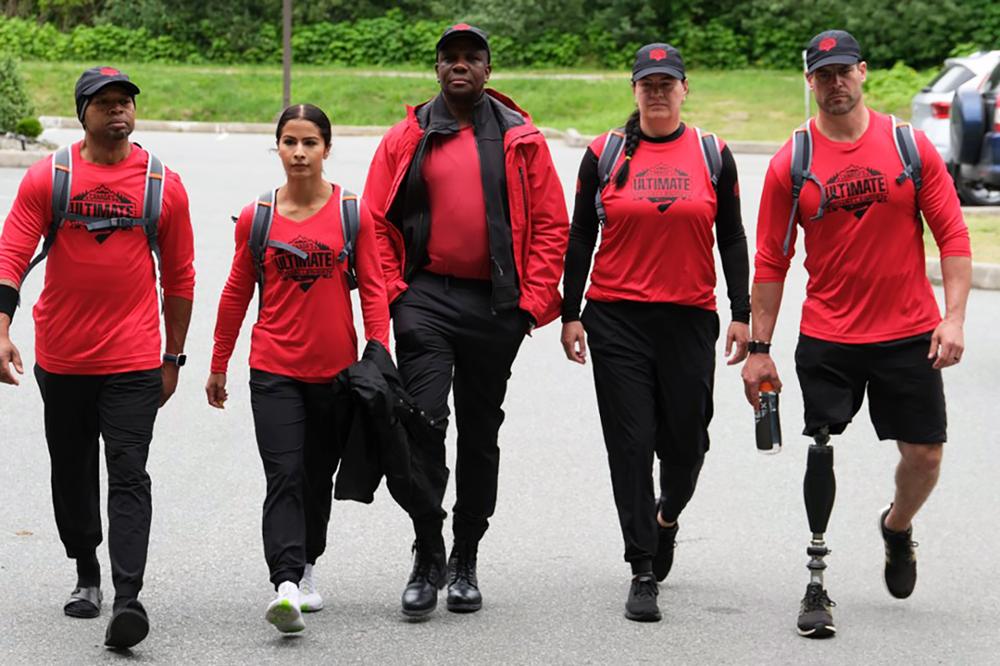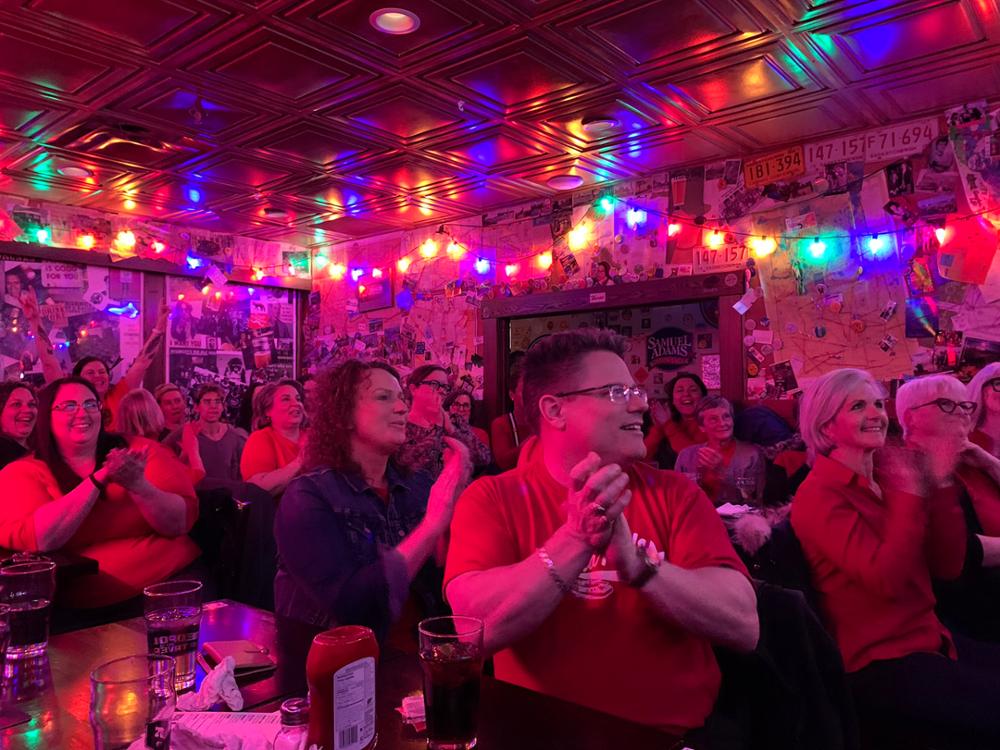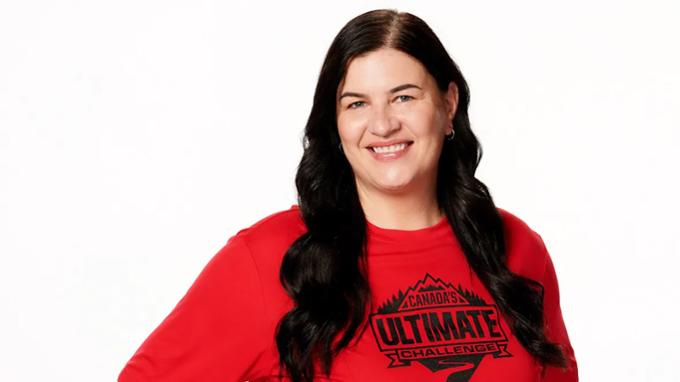While there was no red carpet, no paparazzi, and not a single shimmering evening dress in sight, about 30 people gathered last night at Leopold’s Tavern in east Regina to take in a very exciting television premiere.
The crowd had gathered to watch the debut of Canada’s Ultimate Challenge, CBC Television’s new adventure reality show. Lori Campbell, the University of Regina Associate Vice-President (Indigenous Engagement) is one of the 24 competitors in the Amazing Race/Survivor-type eight-week competition.
“The reason I really did the show is because they were looking for a diverse cast,” says Campbell, a TwoSpirit Cree-Métis educator and advocate from Treaty 6 territory in Northern Saskatchewan and a member of Montréal Lake First Nation.
When I was tired and exhausted, I just kept saying that I get to be here because of the undeniable strength and perseverance of our relatives. I just wanted to make visible to other Indigenous TwoSpirit people, and to others in Canada, there are places and spaces for us and we belong in all places and spaces. Lori Campbell BAdmin '13, Associate Vice-President (Indigenous Engagement)
“They wanted to share stories of everyday Canadians. When I was young I just didn’t see myself represented. You didn’t see a lot of Indigenous athletes and certainly not a lot of queer Indigenous athletes.”
The program was shot this past June and July at some of Canada’s most iconic locations. Each temporarily transformed into obstacle courses that pitted the six teams against one another in a physical challenge with a twist.
“It was stressful emotionally and difficult physically,” emphasizes Campbell. “Some of the younger players were half my age. The schedule was difficult and although the actual competitions are somewhat short, they took a lot of physical and emotional energy. People will see that when they watch.”
Each team had a famous Canadian athlete as its coach. Among them was Mohawk Olympian in water polo and advocate for Indigenous sport Waneek Horn-Miller; six-time Olympic medallist in cycling and speed skating Clara Hughes; three-time Olympic speed skater Gilmore Junio; former captain of Canada’s Olympic bronze medal-winning rugby sevens team Jen Kish; and, NFL Super Bowl Champion and competitive cyclist Luke Willson. Campbell’s team’s coach was Canadian sprinting legend and two-time Olympic champion Donovan Bailey, someone with whom Campbell connected with on a very deep level.

Canada’s Ultimate Challenge Team Red ready for competition in Carcross, Yukon. Left to right: Franz Wellington, Dilpreet Bhattal, Donovan Bailey, Lori Campbell, and Chris Cederstrand. Photo: CBC
“Donovan was a great match for our team,” says Campbell. “I was the oldest woman competitor and we had the oldest man competitor and Donovan was the oldest coach. As a mature team, we had a lot of respect for Donovan. For me, I had a lot of respect for his maturity. We both have a basketball background and we both have a common understanding of the struggles of Indigenous people and Indigenous women in particular. There are also the similarities and challenges of Black people so we connected on that level. We challenged each other and overall we had a great amount of respect for each other.”
As the eldest woman in the competition, Campbell knew she had her work cut out for her against her younger opponents. While she acknowledged that there would be certain challenges that she wouldn’t be competitive in, she believed in her mental toughness and perseverance. Little did Campbell know that she would be calling on these two strengths just as the competition got underway.
“Early in the show I tore my ACL,” says Campbell. “I was examined and was able to continue. I didn’t realize until the show was finished that I completely tore my ACL. I would not have changed my decision to stay even if I knew the full extent of the injury.”

About 30 family and friends gathered at an east Regina restaurant to cheer on Lori Campbell at the premiere of Canada’s Ultimate Challenge. Photo: University Advancement and Communications
While she is sworn to secrecy about how the competition finished, Campbell is not afraid to talk about what drove away any momentary fails of confidence and kept her in the competition.
“My drive for staying there, as an Indigenous woman, as a TwoSpirit woman, is I didn’t want to model failure,” she says. “There are so many struggles in our communities, I was like ‘I’m here. I’m not going to model failure.’ I was going to complete everything that was thrown my way.”
Campbell jokes that just before the show started taping she had undergone a complete heart examine so she knew she wouldn’t collapse and die from a heart attack. But on a serious note, she says that what kept her there was a deep-rooted pride in her Indigenous heritage.
“When I was tired and exhausted, I just kept saying that I get to be here because of the undeniable strength and perseverance of our relatives. I just wanted to make visible to other Indigenous TwoSpirit people, and to others in Canada, there are places and spaces for us and we belong in all places and spaces. And we can dream to be whatever we want to be and do whatever we want to do.”
The members of the winning team received a trip to the 2024 Paris Olympics.
“It was an amazing experience,” she adds. “I met some amazing people and if it weren’t for the show we never would have been able to get to know one another. It was the experience of a lifetime.”
Banner photo: University Photography Services
About the University of Regina
Set in the heart of the Canadian prairies we are a comprehensive, mid-sized university where the opportunities are as limitless as the horizon. Our campuses are on Treaty 4 and 6 - the territories of the nêhiyawak, Anihšināpēk, Dakota, Lakota, and Nakoda peoples, and the homeland of the Michif/Métis nation. It is our responsibility to strengthen relationships with Indigenous communities to build a more inclusive future for all. Our three federated colleges, 10 faculties, 25 academic departments, and 18 research centres foster innovative research with practical and theoretical applications. We are committed to cultivating the potential of our 16,000 students and supporting their health and well-being. We take learning beyond the classroom through work and volunteer experiences to develop career-ready graduates.
Let’s go far, together.
